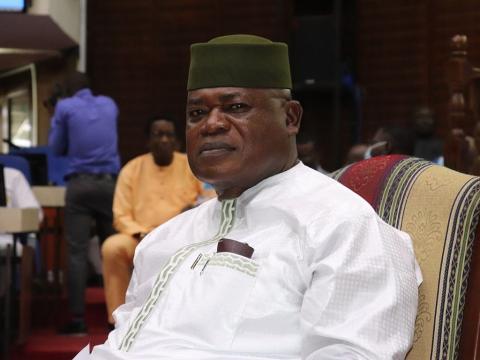The 2023 Statement of Economic & Financial Policies, My Expectations
By Franklin Sisabu Bendu
Now is a challenging time to be a Minister of Finance in Sierra Leone. Firstly, there is the Ukraine/Russia crisis and all the macroeconomic challenges that need be address. Secondly, there is an election in the first half of 2023. This too has challenges for revenue and expenditure. Third, there is an economy to run and citizens expect the government to deliver on key issues like education, energy, health etc.
As we await the Minister’s statement today – Friday 11th November, 2023 – there are some issues that are worth thinking about.
Addressing the challenges from the Ukraine/Russia Crisis
This is one risk that the Minister has no control over. The sooner it ends the better for the world. One area we will continue to be adversely affected is the agriculture sector, especially with regards to the availability of fertiliser. Government should endeavour to engage the private sector to explore other sources for the supply of fertilisers to support food production. Furthermore, given the acidity and alkalinity of our soil, government should also work with the private sector to ensure the availability of lime and acid to increase agriculture yield.
The crisis is also having an impact on the price of crude oil and consequently on the refined products that Oil Marketeers are importing into the country. An increase in the price of crude oil is going to put pressure on the exchange rate. Government should endeavour to engage the mining companies to ensure that apart from their payment of royalties, some percentage of their sales is retained in the domestic economy. This will help to ease the pressure on forex demand and limit the rapid rate of depreciation of the New Leone.
Domestic Revenue Mobilisation
The implementation of government’s policies largely depends on the availability of domestic revenue. In an election year, budget support from donors is highly unlikely before the polls. As such, it is important that the government puts premium on mobilising domestic revenue. The implementation of the Treasury Single Account is a commendable achievement and the Ministry of Finance should ensure that revenue collecting agencies maximise their collection potential.
Although the revenue from the export of timber has been a welcome addition to domestic revenue, this should be balanced against the adverse consequences on the environment.
Our main source of mineral revenue is from royalties, as such, the Ministry of Finance in collaboration with the National Revenue Authority and National Mineral Agencies should fully execute the arms-length pricing of minerals as prescribed in the Mines and Minerals Act, 2009.
Import and excise duties from international trade is another major source of domestic revenue. It is imperative that the National Revenue Authority fully utilise the ASYCUDA system to maximise revenue potential.
Recurrent Expenditure
It is my expectation that Ministries, Departments and Agencies were able to prepare their budget within the current priorities in the national development plan. Bringing in new activities that were not part of the approved budget will impact on the credibility of the budget and distort the approved appropriation.
Against the potential challenges in domestic revenue mobilisation due to exogenous factors, rationalising expenditure will be critical to create the fiscal space for implementing government policies. Given the economic challenges, government’s expenditure policies should be geared towards cushioning the economic impact on citizens.
Energy price is one expenditure item that government should have a clear policy on. Other countries are addressing their energy challenges through various policies based on the fiscal space they can create.
On fuel, government should endeavour to ensure a full pass-through and educate the public accordingly. This commodity is outside the control of government and further subsidy from the budget will adversely affect allocation to other critical areas. Data has shown that the rich benefit more than the poor from universal fuel subsidy. Government should develop policies to protect vulnerable households from any potential increase in fuel price. Revenue from import and excise duties on fuel can be channelled through the MUNAFA Fund to target smallholder farmers and small businesses.
Government employees on fixed income are experiencing a decline in their real income. Some nominal increase in wages will help mitigate the impact of the increase in the general price level.
Editor’s Note: Please note that the views expressed in this article do not in any way represent those of the organisation he works for.








